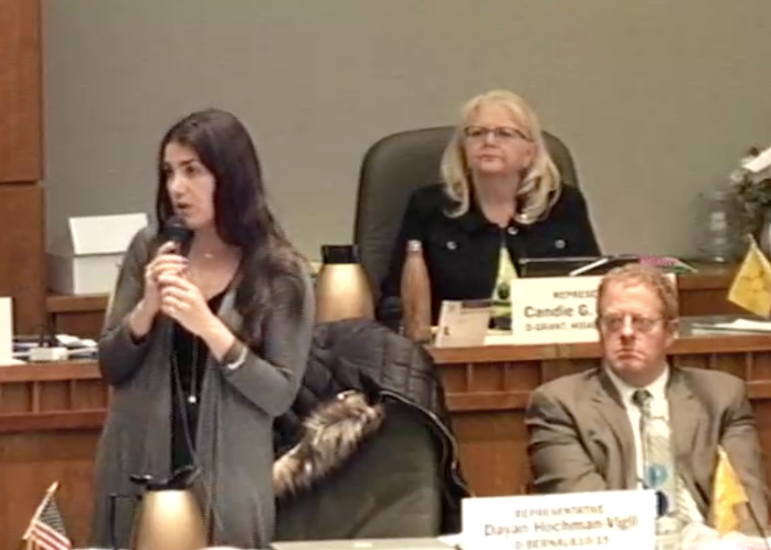
It was originally just a simple bill requiring lobbyists to report to the Secretary of State all the bills they lobbied on, and their position on the bills if they took one, within 14 days of the end of the session. But before HB 131 was passed by the House of Representatives last night 62-0, it was amended to include a sweeping ban on lobbyist spending on lawmakers during a legislative session.
“My intention is to limit a lobbyist from making any expenditure, whether they’re providing a committee dinner, whether they’re putting drinks in your office, whether they’re putting cookies on your table, it’s removing them from the process,” Republican Minority Leader Jim Townsend of Artesia said when explaining the amendment.
State legislators are already barred from soliciting campaign contributions from January 1 through the end of each legislative session. Should this bill pass the Senate and be signed into law, it would ban lobbyists from spending on legislators, including making campaign contributions. And most, if not all, lawmakers would find themselves paying for more of their food and beverages during the session.
It’s no secret that lobbyists routinely take lawmakers out for dinner and drinks during the session–individually, in groups, entire committees, and on occasion they have meals delivered for the entire House or Senate.
Lobbyists and their employers spend hundreds of thousands of dollars on meals, beverages and entertainment expenses during annual legislative sessions.
Already in 2019, lobbyists and their employers combined have reported spending $186,839. That figure only includes amounts spent over $500, which lobbyists are required to report during the session. The full picture of lobbyist spending during the 2019 session won’t be known until May reports are filed, when they are required to report amounts smaller than $500.
In 2017, the last 60-day legislative session, lobbyists and their employers reported spending $245,431 during the prohibited period on meals, beverages, gifts and other expenses.
Rep. Patricia Lundstrom, D-Gallup, said the legislation was necessary because not a day goes by without “major conflicts of interest.” Sometimes lobbyists themselves have conflicts among their own clients, she said. “You stand there and say, wait a minute, what hat are you wearing today?” Lundstrom chairs the House Appropriations and Finance committee, which drafts the state budget.
HB 131 now heads to the Senate, where an interesting discussion is sure to ensue.